$800,000 MaRS Innovation–Pfizer Translational Research Fund
KIRKLAND, Quebec and TORONTO, April 09, 2018 (GLOBE NEWSWIRE) -- Pfizer Canada is proud to announce an $800,000 contribution to MaRS Innovation to support the vision and mission of MaRS…
KIRKLAND, Quebec and TORONTO, April 09, 2018 (GLOBE NEWSWIRE) -- Pfizer Canada is proud to announce an $800,000 contribution to MaRS Innovation to support the vision and mission of MaRS…
Montreal-based venture capital fund and entrepreneurship program brings over $20 million in funding and deep expertise in consumer electronics to MI members; first deal in speech recognition TORONTO and MONTREAL,…
OICR’s catalyst grant enables WaveCheck to open first partner site at MD Anderson Cancer Center in May
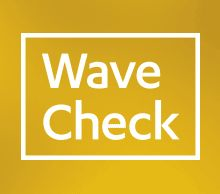 TORONTO, April 8, 2014 — People with breast cancer are a step closer to knowing if their tumour is responding to chemotherapy at the start of treatment, thanks to a $100,000 catalyst grant from the Ontario Institute for Cancer Research (OICR).
TORONTO, April 8, 2014 — People with breast cancer are a step closer to knowing if their tumour is responding to chemotherapy at the start of treatment, thanks to a $100,000 catalyst grant from the Ontario Institute for Cancer Research (OICR).
The funding builds upon MaRS Innovation‘s Indiegogo crowdfunding campaign for WaveCheck, which successfully raised over $50,000 from over 500 supporters worldwide in two months last fall.
Read Jane Gerster’s article for the Toronto Star about OICR’s catalyst grant for WaveCheck. This announcement was also covered in Metro, BetaKit and Council of Academic Hospitals of Ontario’s Catalyst newsletter.
WaveCheck, a clinical technique invented, refined and tested by scientists at Sunnybrook Health Sciences Centre and Ryerson University over 20 years, aims to show whether chemotherapy is actually destroying a breast cancer tumour at the beginning of chemotherapy treatment (in as little as four weeks), rather than at the end of treatment (typically four to six months).
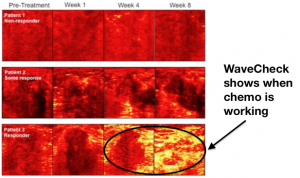
In early clinical testing, the non-invasive, image-guided technology has shown promise as an accurate, efficient way to monitor tumour response, opening the door to tailored treatment.
“This is a significant step towards achieving the goal of personalized medicine. The clinical trials will confirm that information provided by WaveCheck can determine if the treatment is the appropriate one or that other options should be chosen, sparing patients the side effects of treatments that will not likely be successful,” said Dr. Tom Hudson, OICR’s president and scientific director. “If successful, WaveCheck could become a standard tool in the cancer treatment of the future.”
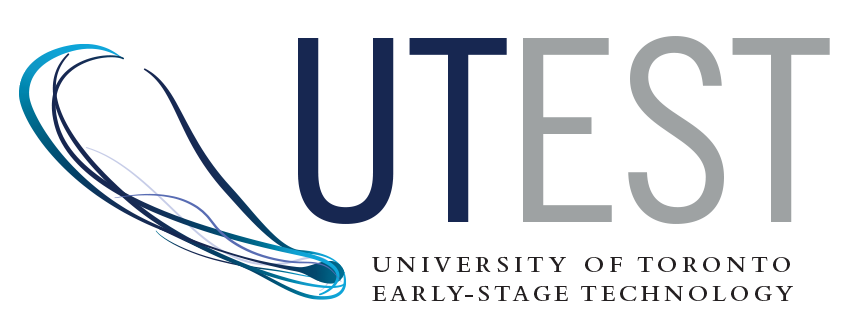 The University of Toronto Early-Stage Technology (UTEST) program helps U of T students, recent grads or professors to take their ideas to market.
The University of Toronto Early-Stage Technology (UTEST) program helps U of T students, recent grads or professors to take their ideas to market.
Successful applicants get mentoring, funding and work space over a 12-month period as they advance their ideas. The program is co-managed by MaRS Innovation and the University of Toronto.
In a U of T “Spotlight on Startups” news article, Brianna Goldberg spoke with Mike Betts and Kurtis Scissons, UTEST co-directors, on what makes for a great applicant.
Here’s an excerpt:
What are you looking for in an exceptional UTEST application?
Evidence of a strong and committed team. It’s critical to have standout technology and a great market opportunity but at the end of the day it’s the team that makes these businesses work—it’s about having a balance of amazing technical talent and business leadership and execution skills. When we come across an application that has a really awesome team, it stands out. – Mike Betts, UTEST co-directorWhat’s one common mistake you see in applications for UTEST that might cause them to be rejected?
Commitment. We want entrepreneurs that are fully committed to the program and to their new companies. UTEST is a serious program for serious entrepreneurs who want support to create a sustainable successful company. The application must exude your confidence in your idea and the effort the entrepreneur(s) will commit to see it successful. – Kurtis Scissons, UTEST co-directorWhat advice would you give to those considering applying to UTEST?
1. Build a balanced team. Understand the strengths of your team members and ensure that gaps can be addressed either through internal change or be open to external hires.2. Be passionate about your idea but also understand it will be a rollercoaster of emotions. –Scissons
Betts and Scissons are accepting applications for UTEST’s third cohort until April 17. Current students, current faculty and recent graduates of U of T are welcome to apply.
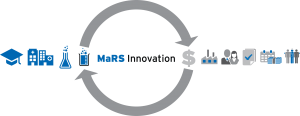
MaRS Innovation (MI) has launched a unique funding program to match researchers with industry partners while advancing early stage technologies: the MaRS Innovation Industry Access Program (MI-IAP).
This program provides a simple mechanism to connect researchers with MI’s industry partners. The process and application form are intentionally brief to save researchers time and allow MI’s partners to review a wide range of remarkable technologies within the Toronto academic community in a short period of time.
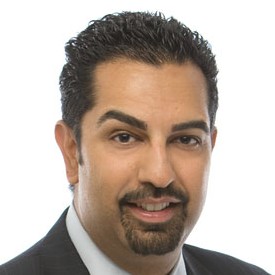
“Many granting programs require an industry partner, but leave finding that partner to the researcher,” says Parimal Nathwani, vice-president of life sciences at MI. “Our Industrial Partnership Program completes that step for them. We also know researchers within our member institutions are incredibly busy, which is why we’ve adopted a streamlined process to save them time.”
The program is open to any researcher affiliated with our 16 member institutions working on technologies in: